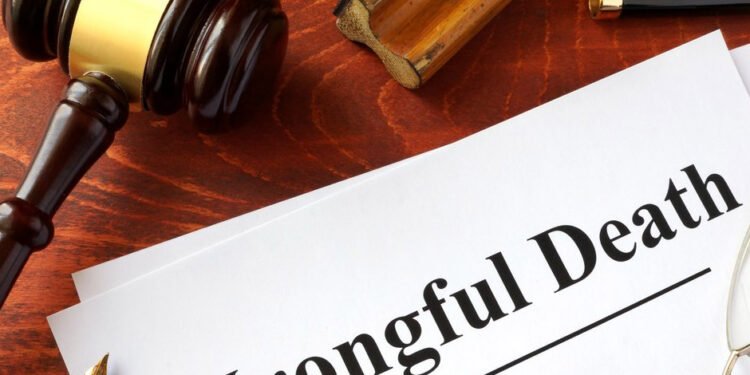Wrongful death cases can arise from various unfortunate incidents, including accidents, medical malpractice, or even criminal acts. For grieving families, navigating the complex legal landscape while coping with their loss can be overwhelming. When pursuing compensation for their loss, families often rely on wrongful death lawyers to guide them through the legal process. We will explore how https://www.chicagospersonalinjurylawyer.com/wrongful-death/ lawyers calculate compensation, considering various factors that impact the final settlement or award.
Understanding the Basis for Compensation Calculation
Compensation in wrongful death cases typically encompasses two primary categories: economic and non-economic damages. Economic damages refer to the tangible financial losses incurred due to the death of a loved one. In contrast, non-economic damages account for the emotional suffering and loss of companionship that the family endures. Wrongful death lawyers begin by assessing the deceased individual’s financial contributions to the family, including lost income, benefits, and future earnings. This calculation often involves the deceased’s age, health, occupation, and earning potential.
The financial impact on dependents, such as children or a spouse, is also considered. Lawyers may enlist the help of financial experts to project future earnings and the lost benefits that would have accrued had the deceased lived a full life. They often consider any remaining life expectancy calculations, which can vary based on statistical life expectancy data. By combining these economic factors, wrongful death lawyers create a financial picture reflecting the family’s losses.
Non-Economic Damages and Emotional Suffering
While economic damages provide a concrete financial assessment, non-economic damages are inherently more subjective. Wrongful death lawyers consider the emotional and psychological toll the loss has taken on the family. This can include the loss of companionship, emotional distress, and the impact on the family’s quality of life. Many states provide guidelines on calculating non-economic damages, but these calculations can vary widely depending on the circumstances surrounding the case.
For example, wrongful death lawyers may assess the emotional bond between the deceased and the surviving family members to determine the appropriate compensation for loss of companionship. Factors like the length of the relationship shared experiences, and the emotional dependency of the survivors play crucial roles in this evaluation. In many cases, lawyers may argue for higher non-economic damages in situations where the death was particularly tragic or violent. These subjective assessments often require sensitivity and an understanding of the family’s unique circumstances, making the lawyer’s role essential in achieving a fair settlement.
Punitive Damages as a Consideration
In some wrongful death cases, especially those involving gross negligence or intentional harm, lawyers may also pursue punitive damages. Unlike compensatory damages, designed to reimburse the victim’s family for their losses, punitive damages aim to punish the wrongdoer and deter similar conduct in the future. Eligibility for punitive damages is contingent on the nature of the case and often requires clear evidence of malicious intent or extreme negligence.
Calculating punitive damages can be complex, as it typically involves demonstrating that the defendant’s actions were particularly egregious. Wrongful death lawyers must present compelling evidence to convince the court or jury that punitive damages are warranted. These damages can significantly increase the overall compensation awarded to the family but are also more challenging. The approach lawyers take in these cases can greatly influence the outcome, as juries and judges often have wide discretion regarding the amount of punitive damages awarded.
Gathering Evidence to Support Compensation Claims
Calculating compensation in wrongful death cases relies heavily on the evidence gathered during the investigation. Wrongful death lawyers conduct thorough investigations to compile the necessary documentation to support their claims. This may include police reports, medical records, witness statements, and expert testimony. The quality and quantity of evidence can greatly influence the potential compensation awarded to the family.
Lawyers may also collaborate with medical professionals to obtain a clear understanding of the deceased’s health and the circumstances surrounding their death. This can provide insight into how the death occurred and the extent of the suffering involved. For instance, in medical malpractice cases, expert testimonies from medical professionals can substantiate claims that the standard of care was unmet. This evidence can be pivotal in establishing liability and ensuring the compensation reflects the true impact of the loss on the family.
The Role of Insurance Companies in Compensation Calculation
Insurance companies often play a significant role in wrongful death cases, particularly when determining compensation. When a wrongful death claim is filed, the at-fault party’s insurance company may be involved in negotiating a settlement. Wrongful death lawyers must be adept at dealing with insurance adjusters who may attempt to minimize compensation offers.
Understanding how insurance companies evaluate claims is crucial for lawyers to advocate for their clients effectively. Adjusters often use formulas to calculate compensation based on medical expenses, lost wages, and other financial factors. However, they may not adequately account for non-economic damages, emotional suffering, or the unique circumstances of each case. Lawyers must be prepared to counter these tactics and present a comprehensive argument for the full scope of damages suffered by the family.
Calculating compensation for wrongful death cases is a multifaceted process that requires a thorough understanding of legal, financial, and emotional considerations. Wrongful death lawyers play a crucial role in guiding families through this journey, helping them seek justice and financial relief for their loss. By assessing economic and non-economic damages, gathering evidence, and negotiating with insurance companies, these lawyers strive to ensure that grieving families receive fair compensation. Ultimately, while compensation can never replace a lost loved one, it can provide a measure of support for families as they navigate the difficult path of grief and healing.












